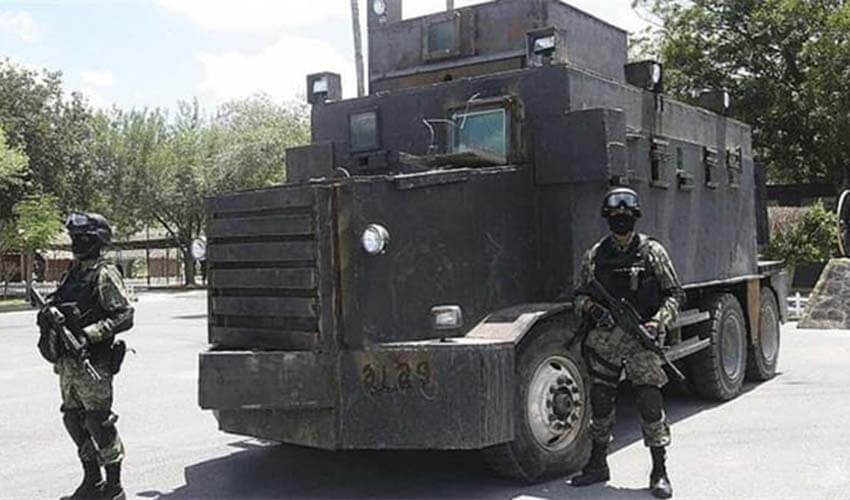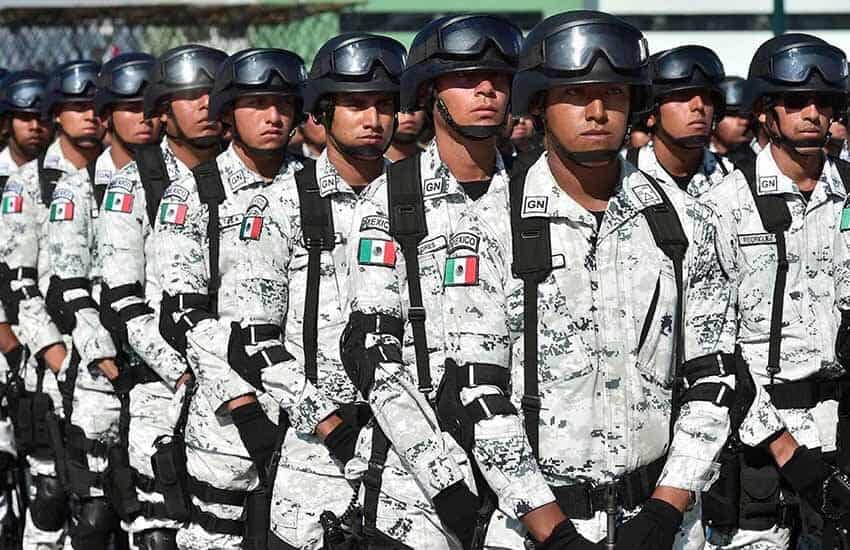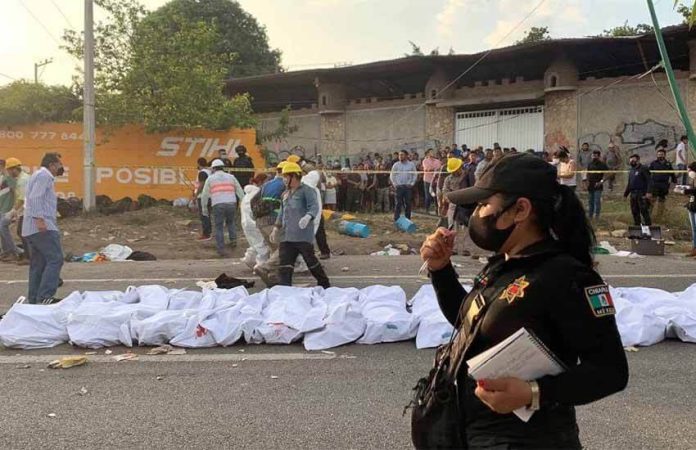Mexico has the fourth highest levels of criminality in the world, according to a new organized crime index.
Only the Democratic Republic of the Congo, Colombia and Myanmar have higher criminality scores than Mexico on the Global Organized Crime Index 2021, described as the first tool of its kind designed to assess levels of organized crime and resilience to organized criminal activity.
Developed over the past two years by the Global Initiative Against Transnational Organized Crime, a Switzerland-based nongovernmental organization, the index measures organized crime in all 193 United Nations member states.
“The results, which draw from a comprehensive dataset informed by experts worldwide, paint a worrying picture of the reach, scale and impact of organized crime. It is a sobering thought, for instance, that nearly 80% of the world’s population today live in countries with high levels of criminality,” the index report said.
Mexico’s score on the index – made up of criminal markets and criminal actor components – was 7.56.

For criminal markets – which considers human trafficking, human smuggling, arms trafficking, flora crimes, fauna crimes, nonrenewable resource crimes and the trade of heroin, cocaine, marijuana and synthetic drugs – Mexico ranked first, or worst in the world, with an average score of 8.
In the criminal actor category – which looks at mafia-style groups, criminal networks, state-embedded actors and foreign actors – Mexico ranked 22nd with an average score of 7.13.
The index’s Mexico summary elaborated on a wide range of organized problems in the country, where large, powerful criminal organizations such as the Jalisco New Generation Cartel and the Sinaloa Cartel operate.
It noted that Mexico is a transit country for human trafficking and that sex trafficking within Mexico and to the United States is “substantial.”
“The pandemic exacerbated collusion between corrupt officials and traffickers preying on migrants through forced engagement in criminal economies or extortion, with officials relying less on bribery and more on organized-crime links for profits,” the summary said.
It also said that Mexico has a well-established arms-trafficking market and that flora and fauna crimes are a significant problem.
“Drug traffickers control timber trafficking in Jalisco, forcing communities to pay quotas for protection,” the summary said.
“… Rosewood trafficking, controlled by Chinese mafias and other groups operating locally and regionally, is significant, and dozens of shipments, primarily destined for the Chinese furniture market, are seized annually across Pacific ports and the Yucatán Peninsula,” it said.
With regard to fauna crimes, the summary said that demand for Mexican wildlife has risen and sought-after species include jaguars, golden eagles, parrots, macaws and reptiles. It also mentioned the illegal trade for totoaba, a fish species whose swim bladder is considered a delicacy in China.
“The trade generates hundreds of millions of dollars annually, with one pound of totoaba swim bladder more valuable than cocaine. Mexico’s illicit sea cucumber trade is also significant, causing violence in Yucatán and Campeche,” the summary said.
Among the other non-drug crimes it mentioned were oil theft and illegal gold and silver mining.
With regard to narcotics, the summary said that most heroin sold in the United States originates in Mexico, especially the northern Golden Triangle region of Chihuahua, Sinaloa and Durango.

“Mexican cartels also partake in the production and transportation of methamphetamine and, increasingly, fentanyl. Both are increasingly popular in the U.S., where fentanyl claims tens of thousands of lives annually,” it said.
“… Mexico’s cocaine trade is less consolidated, due to internal fragmentation, but the market is large. Mexican actors serve as key brokers and transporters, and cartels have become more active in the Colombian and Central American cocaine industries. Much of the rival cartel violence relates to control of the northbound shipment routes.”
With regard to criminal actors, the summary said that Mexico’s drug-trafficking organizations are among the most sophisticated mafia-style groups in the world.
“Although cartel fragmentation reduced the number of groups with large international operations, those remaining have networks spanning most of the Americas, even stretching into Europe and Asia,” it said.
“… Drug-trafficking organizations focus on international drug trafficking, generating billions of dollars in revenue annually, but numerous revenue streams, including oil theft, illegal logging, human trafficking, kidnapping and extortion, are deeply entrenched,” the summary said.
It noted that cartels have firearms including military-grade weapons and that conflict is widespread between competing groups and state security forces, “with some groups marking their territory by displaying beheaded and mutilated corpses.”
“Drug cartels control territory in much of Mexico, co-opting the state through bribery and intimidation with the aim of facilitating illicit activity and influencing the democratic process. Politicians are frequently murdered or threatened by mafias attempting to ensure that cooperative politicians hold office,” the summary said.
The index also measured countries’ resilience to organized crime, which was defined as “the ability to withstand and disrupt organized criminal activities … through political, economic, legal and social measures.”
Mexico ranked 112th in that category, which gave each country a score based on 12 indicators including political leadership and governance, national policies and laws and law enforcement. Mexico’s score was 4.46, well below those of Finland and Liechtenstein, which ranked equal first on 8.42.
The Mexico summary said that the “militarized, strong-arm approach to tackling organized crime has produced mixed results.”
“Corruption is rife, causing collusion between law enforcement, judges and criminals. Organized-crime-related violence and criminal impunity are at a record high, with poor access to legal proceedings,” it said.
“… The government lacks a cohesive security strategy, with attempts to address corruption and organized crime seen as highly politicized or as efforts to embarrass past governments. The president is centralizing control across national institutions and has proposed new, technically illegal policies, such as having marines in charge of port customs activities.”

The resilience section of the summary also said that structural deficiencies in Mexico’s legal system hamper its ability to fight organized crime and that laws pertaining to organized crime are not well-enforced.
Mexico’s overall criminality score was well above those of its North American trade partners, the United States and Canada, which ranked 66th and 161st on the index, respectively. The country with the lowest criminality score was Tuvalu, a small island nation in the south Pacific.
Mexico News Daily
